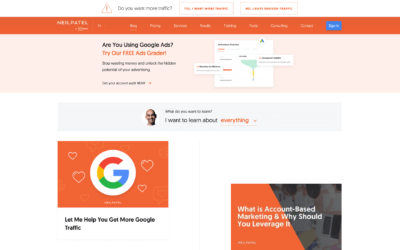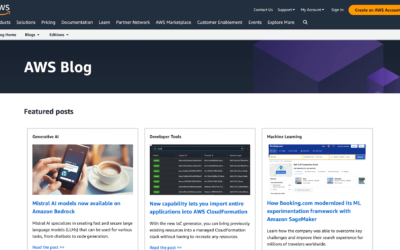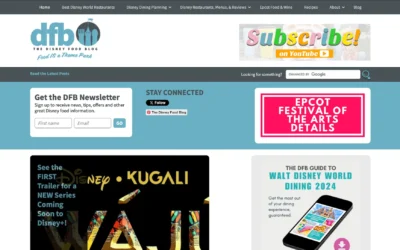The Top Blogs You Need To Be Reading Right Now
Stop searching. We’ve done the work for you. At Bloggers Republik, we showcase the cream of the crop when it comes to blogs across every industry, topic, and niche imaginable.
Trending Now
Trending Blogs
Featured Blogs
Staff Picks
Neil Patel’s Digital Marketing Blog
Neil Patel’s ubiquitous blog is the leading resource for free, actionable growth marketing guides across SEO, paid ads, email and more from the iconic entrepreneur.
AWS Blog
The AWS Blog is the definitive source for cloud computing insights straight from Amazon’s engineers. Get new service updates, architecture guidance, and forward-looking tech leadership.
Pompe Disease News Blog
Founded in 2019 by patient-turned-advocate Chris Comish, Pompe Disease News uplifts and informs the neglected Pompe community as the first publication exclusively covering this rare disease.
Seahawks Draft Blog
Seahawks Draft Blog founded in 2008 provides prospect analysis, insider draft intel, fan community and trusted takes on Seattle’s NFL draft needs to educate diehard 12s.
Royal Caribbean Blog
The Royal Caribbean Blog founded in 2010 as the web’s top cruise fan community providing insider travel guides, forums and resources to hundreds of thousands planning their dream vacations.
Armstrong Economics Blog
Armstrong Economics applies models scanning 4000 years of data to generate controversial yet uncannily accurate predictions on markets, politics and civilization by unconventional economist Martin Armstrong.
PowerLine Blog
Power Line is a pioneering conservative political news blog setting today’s debates on policy and culture wars with thoughtful perspective since 2002.
Disney Food Blog
Disney Food Blog is the web’s leading guide to menus, dining reviews, food photos, snacks, secrets across Walt Disney World, Disneyland, parks resorts worldwide relied on by millions of theme park travelers.
OMG Blog
OMG Blog dishes out the latest breaking news on Hollywood and celebrity culture with its signature smart, snarky style. Led by Editor-in-Chief Trent Vanegas since 2004.
West Seattle Blog
West Seattle Blog is the prime source for real-time hyperlocal news in Seattle’s tight-knit peninsula neighborhood. Run by dynamic duo Tracy Record and Patrick Sand since 2007.
Neil Patel’s Digital Marketing Blog
Neil Patel's Digital Marketing BlogThe Omnipresent Evangelist of Traffic...
AWS Blog
AWS BlogThe Pulse of Cloud Innovation with AWS In the realm of cloud computing...
Pompe Disease News Blog
Pompe Disease News BlogThe Community Hub for Pompe Disease Advocacy Pompe...
Seahawks Draft Blog
Seahawks Draft BlogThe 12th Man of the NFL Seahawks Draft The old adage holds...










